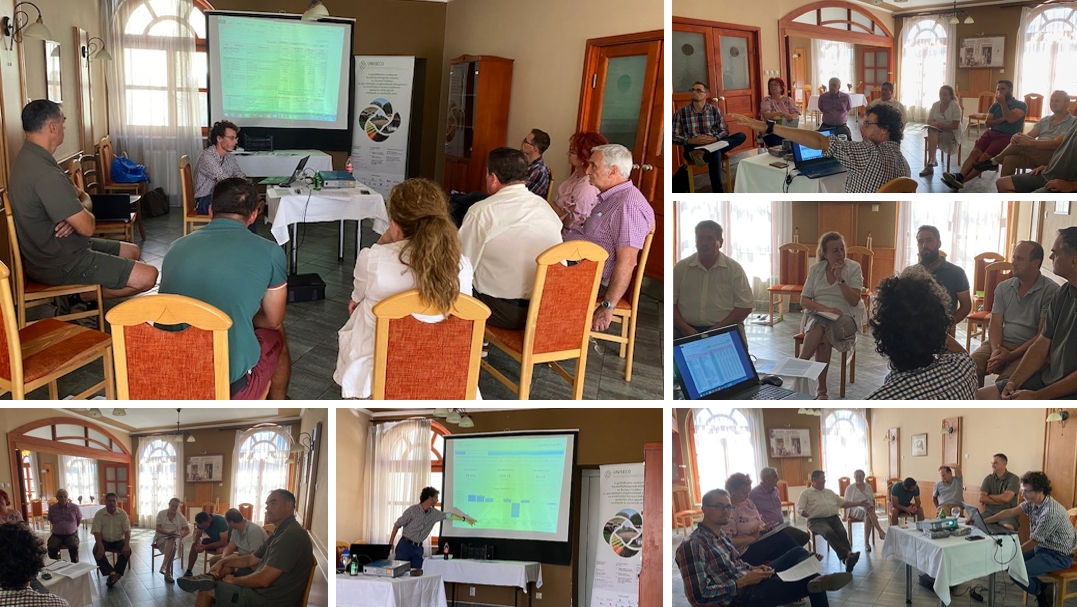The case study results so far were presented and consulted.
At the beginning of the workshop Katalin Balázs presented the project and the background of the Hungarian CS in brief with an outlook to the actualities of the Green Deal, Farm to Fork strategy and the new CAP planning, and how it affects soil conservation and no-tillage methods which is the core topic of our CS.
Then Alfréd Szilágyi summarised the results of the status quo sustainability assessments of the CS farms with a brief introduction to the three DST tools that were applied (SMART, Cool Farm Tool, COMPASS).
In the Hungarian CS we deal with four scenarios of soil cultivation that can be considered being the transition steps to a more sustainable arable farming. From conventional tillage through reduced and no inversion cultivation to no till farming. László Podmaniczky created an economic modell for these scenarios, and during the workshop this modellling framework and databases were shared with farmers, both the data and the differences between technologies were discussed and validated by them. There was a lively discussion in the group about the know-how of soil cultivation, different tools, machines and prices of operations that are changing in these technologies.
Many thanks to all participants for their valuable contributions.
The slides of the workshop in pdf are available here (in Hungarian).
Read more about the HU case study here.
Photos/text: GEO
